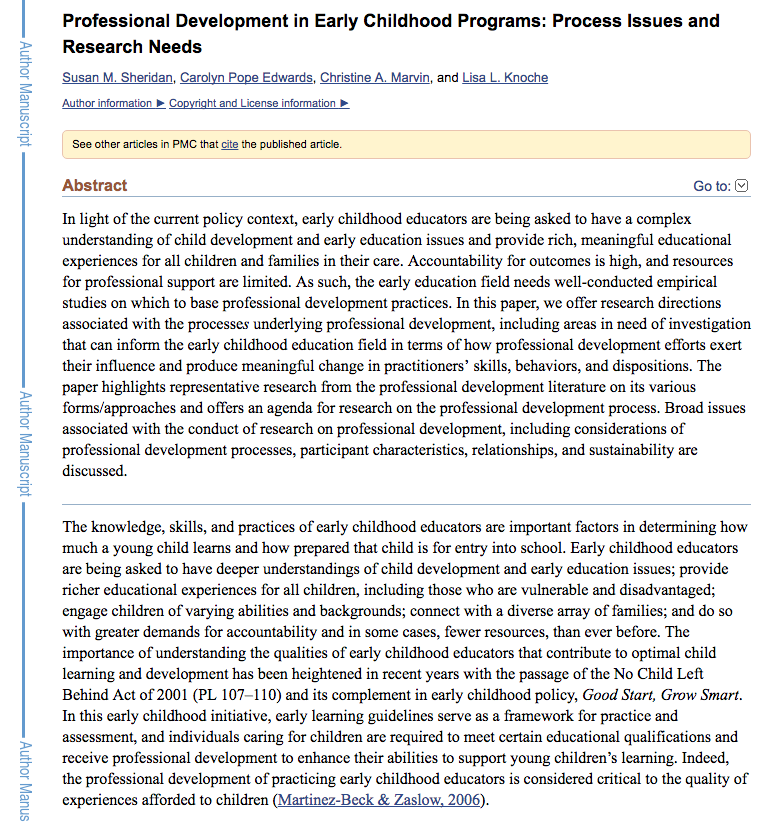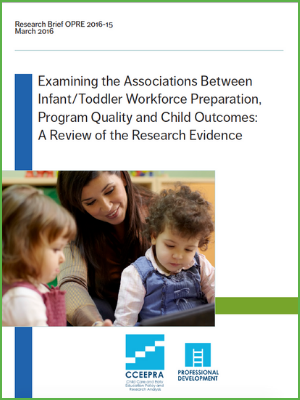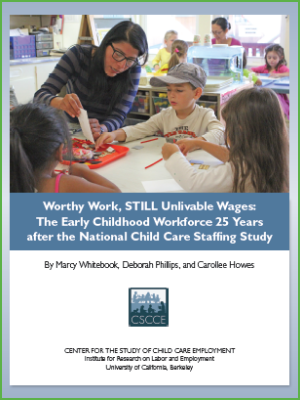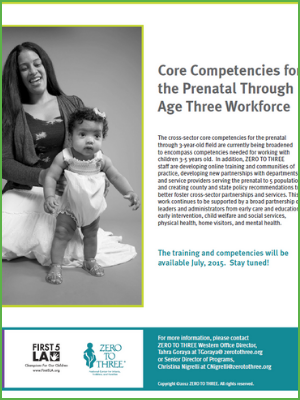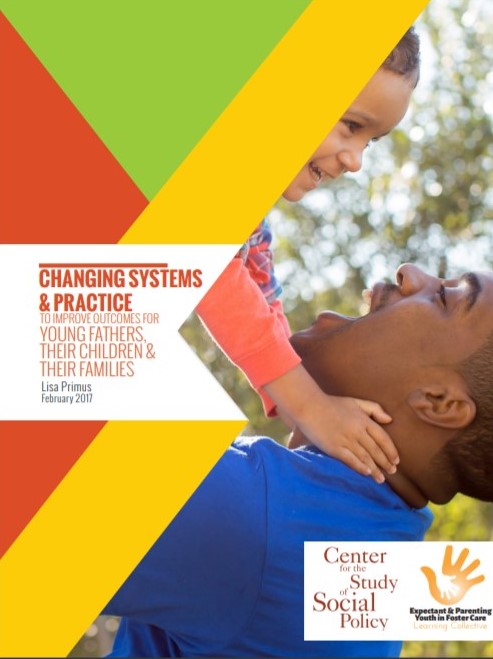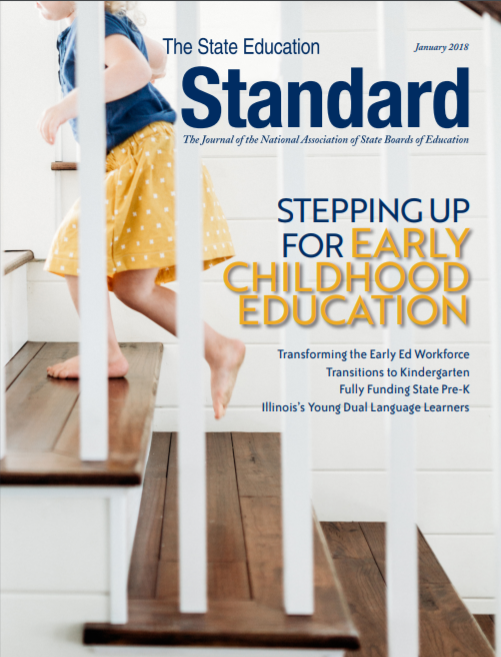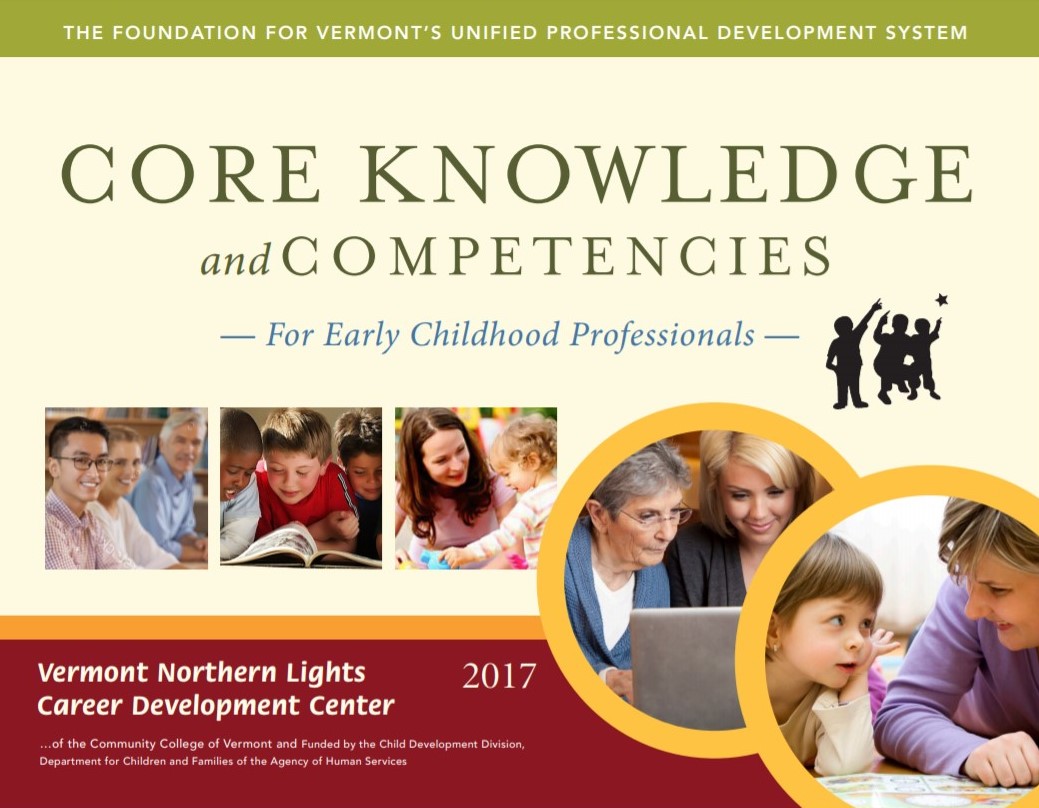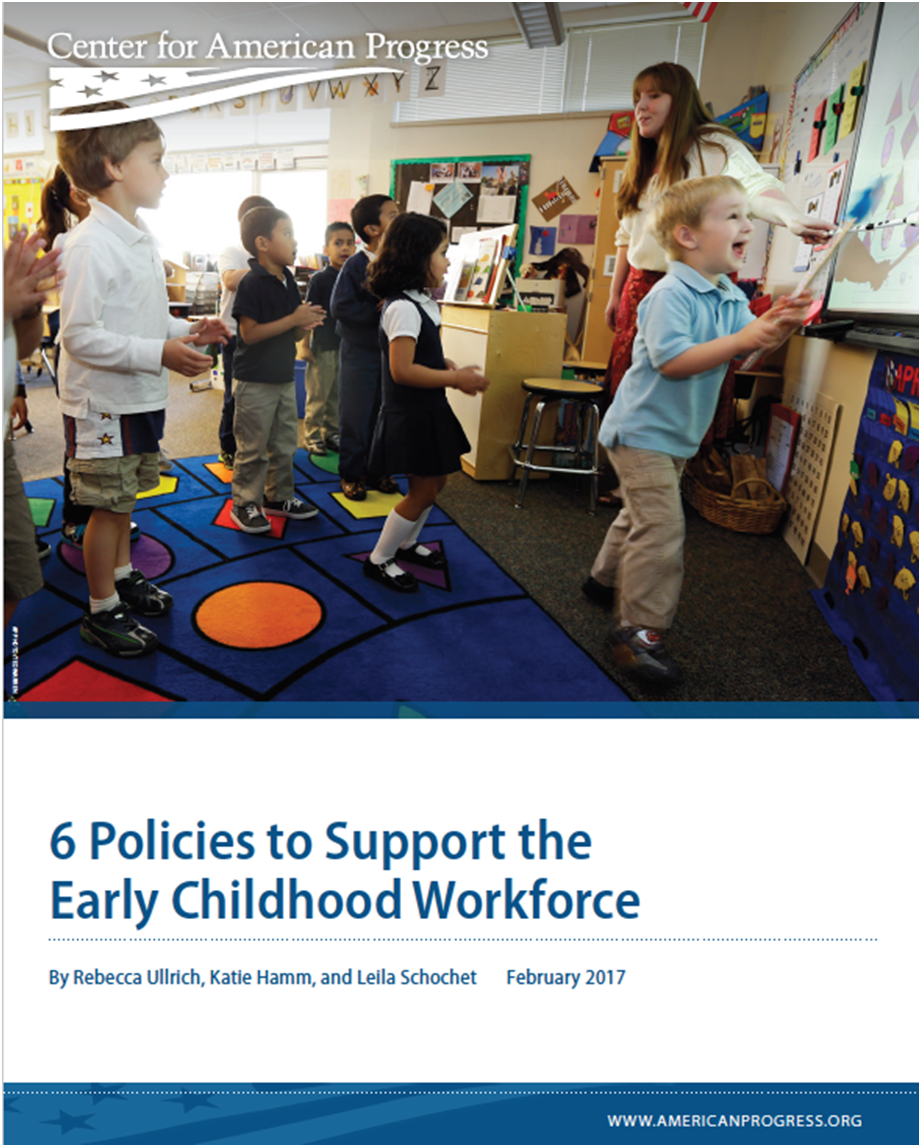Toward the Identification of Features of Effective Professional Development for Early Childhood Educators, Literature Review
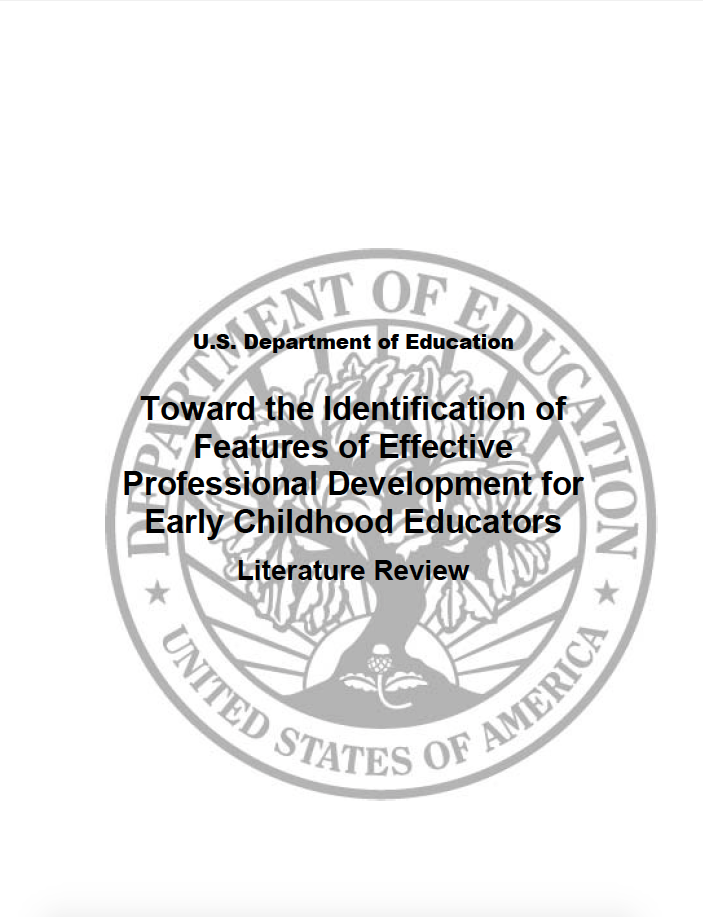
Programs and policymakers face numerous challenges as they develop and implement professional development strategies for the early childhood workforce. The field lacks consistent standards and requirements for professional preparation, and, as a result, low levels of education and a minimum of specialized training in early childhood education are the norm. In addition, current strategies of professional development do not adequately prepare all educators for the array of responsibilities, knowledge, and skills they are expected to demonstrate in their work with young children and their families.
This review incorporates findings from research on four targets of early childhood professional development: 1) strengthening human or social capital; 2) strengthening practices at institutions or organizations providing professional development; 3) strengthening early educator practices related to specific child outcomes; and, 4) strengthening overall quality in classroom or group settings. The literature review analyzed the research on professional development of early childhood educators to work toward identification of a set of core features that characterize effective professional development. A number of gaps were identified in the research on early childhood professional development that need to be addressed.


